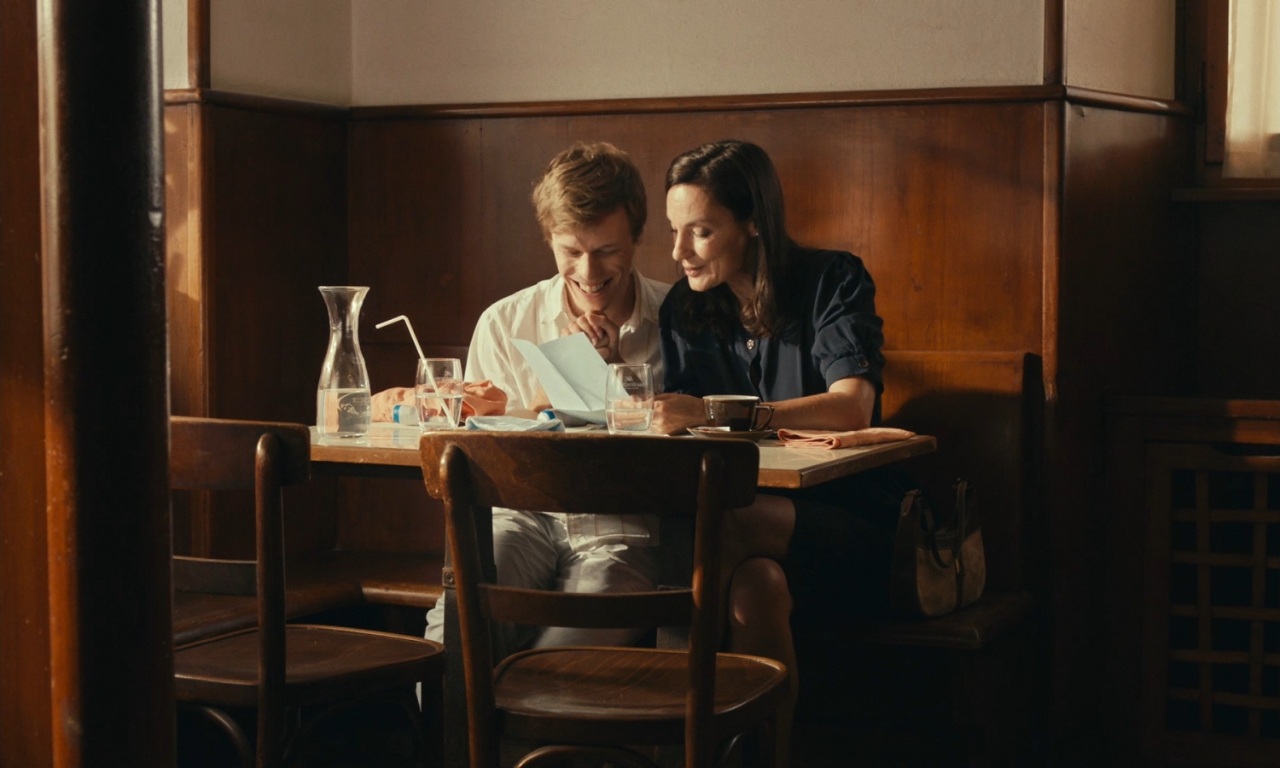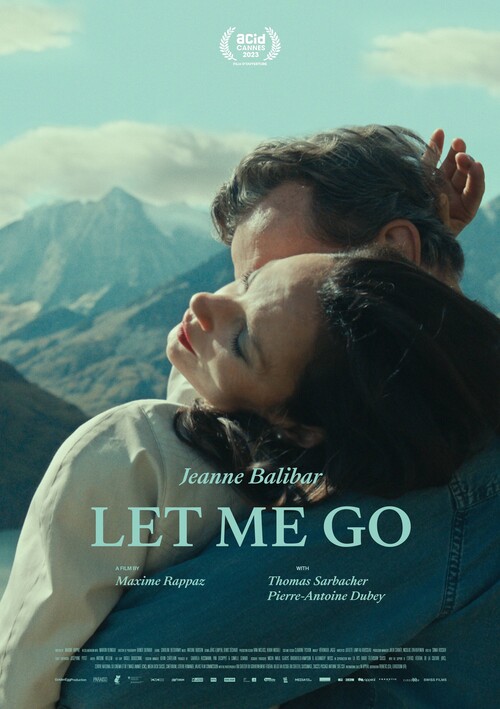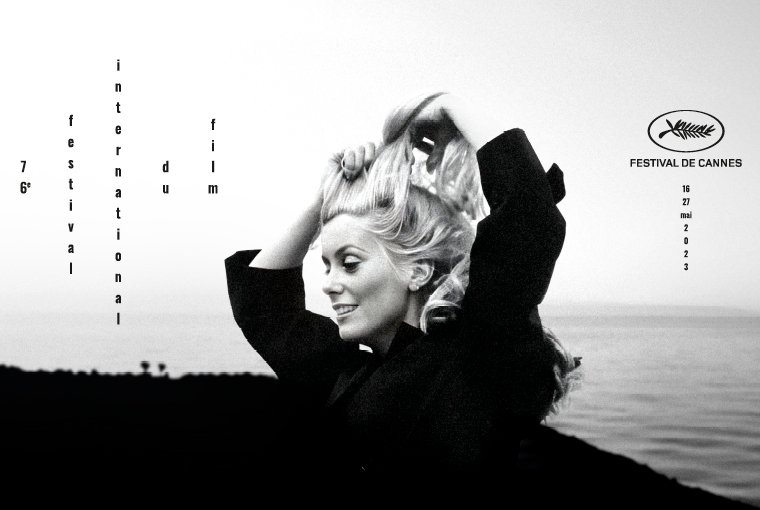“It felt natural to show the life that all women live”: Maxime Rappaz and Jeanne Balibar on Let Me Go

Cannes’ ACID sidebar opened this year with the debut feature of Swiss director Maxime Rappaz. Let Me Go tells the story of a single mother trying to reconcile the different parts that make up her life. Every Tuesday, when her disabled son Baptiste is at his music lessons, Claudine goes to an alpine hotel to spend an hour or two with one of the many single men passing through the tourist location. What little snippets they share of their lives abroad, she neatly repackages into letters to Baptiste, which Claudine signs with his father’s name.
The Upcoming spoke to the director and his star Jeanne Balibar about the origins of the project, female representation and Baptiste’s idol: Princess Diana.
Thank you very much for speaking to me today. I understand this is your first feature Maxime, how did it come about?
Maxime Rappaz: For a long time I wanted to make a film about this idea that one has of the woman or the mother. The maternal figure is something which has been of interest to me for a very long time in the books that I’ve read and the films that I’ve seen.
How much of yourself is in this character, coming from a male perspective?
MR: There is a lot of me in the film, really. The film talks about a woman and her desires. She lives her desires to the fullest, no holds barred. But what she does is, she manages to organise her life into different compartments, and I wanted to address the question of all of the hurdles she has to overcome.
It’s quite a rare film in the sense that it shows a woman of a certain age with all these different facets to herself, being not only reduced to motherhood but also full of desires. How important was it for you, Jeanne, to portray a character like this?
Jeanne Balibar: You know what, somehow that was very natural to me. I felt it was normal that one should show the life that all women live, actually. Because I think all women have to confront themselves to be someone on the one side – I mean all women who are mothers have to confront this situation – you’re a mother on the one side and on the other, you’re a woman and you never cease to be a woman. So somehow, I felt that this wasn’t an usual topic. It felt extremely natural to me, and I wouldn’t be able to say if it is seen very often or not, because it’s such a normal environment for me. I’ve been going through this with my friends, I’ve had conversations with all my friends about it for ages.
How did your collaboration come to fruition? How did the two of you meet?
MR: Well, I wanted to write the film in a very literary way, with lots of nuances. And Jeanne Balibar is one of the many nuances, too, as she is capable of portraying all these nuances. When I wrote the screenplay, I wasn’t thinking of Jeanne in particular, but we met for lunch, a very informal lunch, and she read the screenplay and then she took the role.
The whole Swiss landscape is also a big part of the story. Even in the bedroom, we see the mountains through the window. How important was it to accentuate Switzerland as a backdrop for the story?
MR: When I was deciding on my storyline, I wanted to include the plains, the lowland and the mountains high up. I’m from Switzerland, myself, and I grew up surrounded by mountains. The landscape is important in the film because it carries a lot of symbolism in it as well. And it is a mechanism for telling the story as it lends it a sense of a fable.
Jeanne, could you tell us a little about the collaboration with Pierre-Antoine Dubey, who plays your son?
JB: It was great. It’s such a dangerous character to play for him, and he was so precise and he had a very deep humility somehow towards the difficulty of what he had to do. That was very reassuring to me. So it was easy for me to be tender with him because he himself as an actor was very moving in the way he was considering his own work. Obviously, the film doesn’t work if his character is not played very precisely and with a lot of delicacy, and really his performance, I think, is great. It was essential for me to be able to play my character because if he had not been at the right place in his attitude to his work and to his character, it would have made it completely impossible for me to play my own character of the mother. So yeah, he made it very easy for me by being so good.
We don’t only see Claudine as a mother and as a woman, but also as a seamstress working very dedicatedly from home. Is it true that you have a background in fashion?
MR: Yes, indeed. Fashion is important to me in my life in general, I went to fashion school and I worked in fashion before I went into film. And as for the character, it is interesting that she dresses other people. She provides clothes for the people. It’s a very manual job. And she has her clients, the clients come in, and that brings other stories into her storyline. You hear about their lives. And she’s creating clothes almost like she creates her personality.
Is the fashion element also the reason why Princess Diana plays such an important role?
MR: Maybe? I suppose it’s part of the reason, why I chose that period. I wanted it to take place in the 90s. I was growing up in the 90s, so it was quite a natural time for me to place a story then. It is a bit distant in the past, but not that distant, it’s quite close as well. I wanted to tell a love story without the modern technology we use today.
Selina Sondermann
Let Me Go does not have a UK release date yet.
Read more reviews from our Cannes Film Festival 2023 coverage here.
For further information about the event visit the Cannes Film Festival website here.



























Facebook
Twitter
Instagram
YouTube
RSS